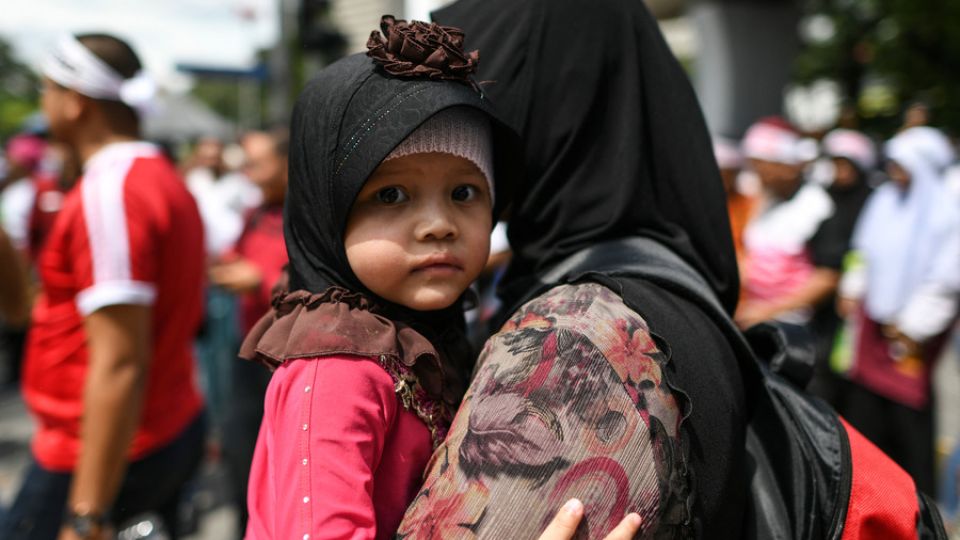May 21, 2025
PETALING JAYA – While more young couples are opting to delay having children, they are not ruling out the idea of starting a family entirely.
Many are simply factoring in the economic situation as the main consideration.
This comes after the Statistics Department revealed that the number of live births in the country has dropped to the lowest ever level, according to the Demographic Statistics Malaysia, First Quarter 2025 report.
For Christian Boon and his wife Samantha, who are both 28 and recently celebrated their second wedding anniversary, the timeline to start having children is crucial, as they want to start saving up first to maintain financial stability.
“Right now, starting a family seems challenging but manageable.
“As we’re both working, we need to consider inflation five years down the line and how that will impact a child’s development while also ensuring we remain financially capable.
“Job stability for us is currently good, but it’s the hidden costs, like purchasing a house, that influence when we choose to have children,” he said.
At present, Boon said the plan is to have two children if the cost of living does not rise too sharply.
He added that he prefers both of them to have the option of continuing their careers after having children.
“Flexible working hours would be greatly appreciated, especially for new parents. It’s common now for both spouses to work, so we need to see more support from employers and policymakers to help couples start families without sacrificing their careers.
“There should also be better and wider access to childcare facilities in the workplace, a major advantage, as parents can attend to their children while fulfilling their professional responsibilities,” he added.
For public servants Nur Atikah Mohd Tamizi, 27, and her husband Isfaiz Firdaus Ramli, 29, who recently celebrated their first month of marriage, the focus is on serving the country first before opting to start a family.
“The current economy encourages both spouses to work, even having side businesses, as long as both contribute financially to the household.
“Raising children involves daycare fees, healthcare, savings for the future and more,” she said.
“At the moment, we are in a long-distance marriage. I’m posted in Kuantan, Pahang, as an enforcement officer, while my husband serves in Kubang Pasu, Kedah.
“So apart from economic factors, our geographical distance is also something we have to consider in our family planning, as it would affect the cost of travelling with babies.”
Nur Atikah added that their current postings could affect the children’s upbringing.
“I want my children to have both parents present during their childhood. That’s why I hope the government will consider allowing me to be transferred closer to my husband in the future.
“Support from the government would definitely encourage civil servants to start families while continuing to serve the nation effectively,” she said.
Nur Atikah also hopes more employers, not only in the public sector, would provide adequate childcare centres for working parents.
According to a Cyberjaya-based dentist identified only as AK, the high living expenses and limited workplace support are pushing many couples to delay starting a family.
“The economy is becoming more challenging each year. Raising a child requires full attention and significant financial commitment,” said the 33-year-old, who has been married for four years.
AK, whose husband is an architect, said they both need to work, making childcare services essential.
“There are no childcare facilities at my workplace, so we rely on a nanny and school transport, which adds to our household expenses.
“The economy has become increasingly challenging over the years, and this certainly affects our decisions, including the decision to have children.
“For example, raising a child requires thorough care such as quality nutrition, a safe environment and appropriate education,” she added.
AK is currently serving the public sector, while her husband works in the private sector.
“In my case, childcare facilities are not offered by employers. In the event of an emergency involving the child, the employee must apply for emergency leave or conditional unrecorded leave.
“However, in my husband’s case, his employer provides flexible working hours to allow him to manage emergencies involving our child.
“In addition, the government also offers tax incentives to parents with children. This does, to some extent, help ease the financial burden of the household,” she said.
For P. Kamalanathan, 26, and his wife S. Geetha, 26, who were married earlier this year, both are occupied with their respective jobs in Singapore as they strive to save money to start a family.
“We are young, and we want to earn as much as possible to get a house and be financially stable before we start thinking of having a family,” said Kamalanathan, who works as a technician in Singapore.
He added that they go to work as early as 6am and come home late if they have to work overtime.

